search
date/time
 | Yorkshire Times Weekend Edition |
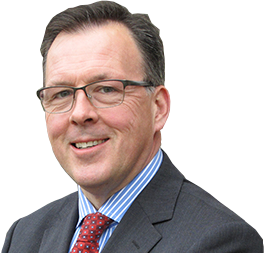
Andrew Palmer
Group Editor
7:30 AM 25th December 2021
business
Christmas Interview: Representing Britain's Directors - Jon Geldart IoD Director-General
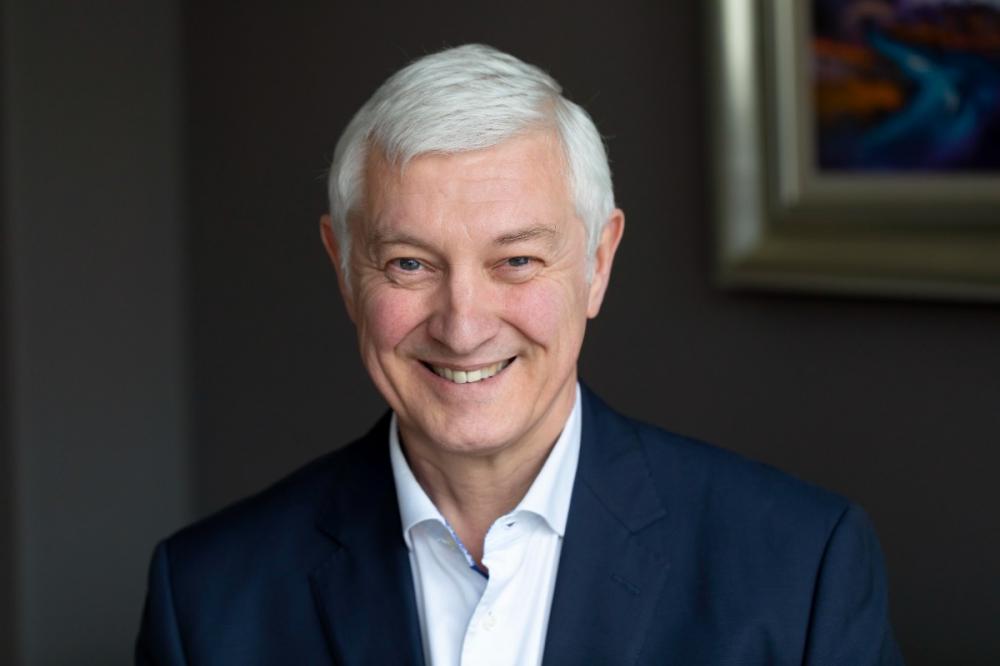
Jon Geldart
And that’s important because he really lives by his mantra that it doesn’t matter where you are situated, the IoD is for everyone across the UK.
He famously said he didn’t want an office at the IoD’s Pall Mall building preferring to operate from his North Yorkshire base, which he set in train long before COVID forced us all to embrace flexible working.
But then, he is impressively pragmatic and a blunt talking, naturalised Yorkshireman.
Government knows what I stand for and what we stand for and I hope that is a way of demonstrating to others who are yet to be members, that this is a worthwhile organisation to be part of and get their voice heard.
I declare my interest. I am a North Yorkshire IoD Ambassador, and the branch was chaired by Jon before he was elevated to the top job.
This straightforward attitude saw him acknowledge that historically the IoD had lost its voice but to regain it, a programme that demonstrated change throughout the organisation had to be at the top of the agenda. He is adamant he has already started to achieve this in the 26 months at the helm by focusing attention on the middle market, which without equivocation, puts him in a strong position when he goes to talk to Kwasi Kwarteng, Secretary of State for Business, Energy and Industrial Strategy or the Chancellor on behalf of directors.
I put to Jon that one of the challenges the Institute has had in the past was getting the message out to the business world about what it does and who it represents.
Again, he clearly articulates the position.
“I am often asked that question. For me, it is unambiguous, namely Britain’s businesses that sit in the middle market space. Those are the organisations that are essential, left uncared for, and unloved by government in the terms of the representation given to them by the other organisations that they [government] speak to.
“The CBI deals with the big guys, the FSB does a brilliant job with the smaller business, the Chambers are good at dealing with the local and Make UK works with the manufacturing sector, which leaves a space for the engine of the economy - the middle market.
“That is who the IoD represents and the focus of our attention,” Jon emphatically states.
Although, he is quick to point out: “that’s not to say we don’t represent all directors because we are, after all, the Institute of Directors, but we really do best represent the middle market as it is an important voice that needs to be heard.”
Representation is a good word to use as the other area this director-general is proud to have achieved, is growth in members especially from a diverse background. “A third of all our new members during 2022 are female, the average age is 46 right in the sweet spot in terms of people between 30 / 35 and 50.
“We are ethnically and gender diverse in a way that may be people didn’t traditionally associate with the IoD.
"Thankfully, I don’t need to shout it from the rooftops I take the view to just evidence it and let it speak for itself. Take a look at this year’s annual report and you will see how we are truly representing the diversity of British directors.
“I feel incredibly proud that I started here in North Yorkshire and that makes me feel really grounded. We can no longer be accused of being white, male, and stale, run out of London."

"Government knows what I stand for and what we stand for and I hope that is a way of demonstrating to others who are yet to be members, that this is a worthwhile organisation to be part of and get their voice heard.
“The IoD is also known for leading on corporate governance and Kwasi, and government, understands that the IoD supports all directors to be the best directors they, and we, can be.”
His resolute attitude is behind his steadfast opinion, that the IoD was of its time when it was set up in 1903, receiving its Royal Charter in 1906, and equally how relevant the brand is a century later.
“Andrew, we are sitting here in a Victorian edifice [The Majestic Hotel] in Harrogate, a town built on Victorian smartness. I feel acutely living here, that the Victorians and philanthropists of the day knew what they were doing in identifying that the quality of directors needed to be improved and we are talking the 1900s. It hasn’t changed!
“There are many examples unfortunately, of directors who were asleep at the wheel and crashed their vehicles. That is unacceptable. Basically, you can be 16 years old upright and breathing and be a director in the UK with no training.
“If you knew your accountant, lawyer or surveyor wasn’t trained, would you give them the work?
“Directors have no training for the job, yet another reason we are here.
“So, besides influencing government on behalf of our core market we also develop the skills of directors, plus we connect directors to one another without fear or favour and without trying to sell to each other.
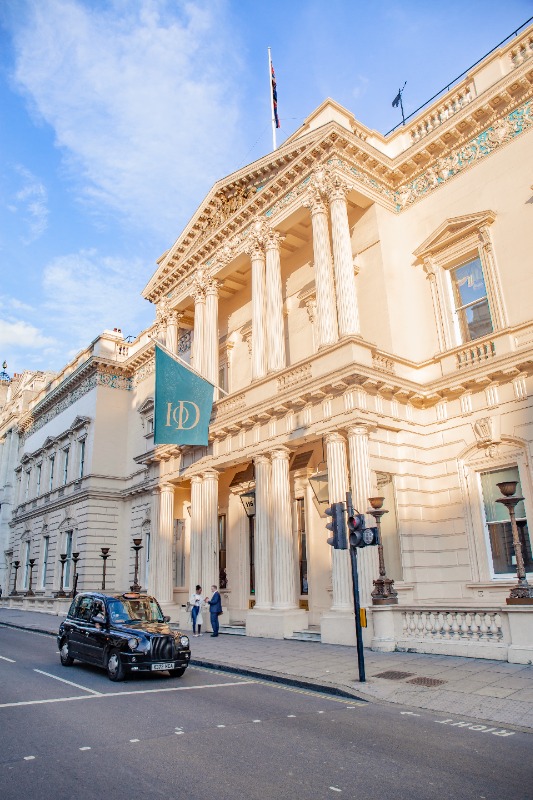
“And we have several examples to show what we do. Again, I use Harrogate because we are here, but I know you cover the North West, Cumbria and the North East with your different titles, and it is the same in those regions. You know Andrew, how we have taken the issues of some business in North Yorkshire, directly to government.
“Now they don’t always get recourse, but their messages and their concerns are taken directly to the relevant Secretaries of State. Being able to provide case studies is incredibly powerful and a great point of leverage that others who advise government sometimes choose not to do.
“I choose to do it because it is important to get their voices heard, it makes it more powerful and personal and quite frankly, more effective.”
There’s also something refreshing about this business organisation’s director-general, he says what he means and means what he says. This Is important when communicating with government.
Jon has been in the job for just 26 months and it's “been one roller coaster ride” “I knew coming into the role we were going to have to deal with Brexit and the issues around it. But no one could have foreseen Covid!”
He is, as members tell me, the right person for the job. “If there’s anyone that can steer the ship to safe waters it is Jon. The IoD is a business operating in the same space as many of its members and that is authoritative and influential,” one IoD branch chair told me.
When I tell Jon he is quick to respond.
“That’s right, Andrew, the IoD is a medium sized business (MSB), so we really know what it’s like to be part of that community and we, like our members, have had to deal with the double whammy of Brexit and Covid.”
“Putting it bluntly, the IoD has had the same trials, tribulations, concerns, and impacts that every other middle-sized business in the UK has had to deal with, so we can share the same pain.
“I believe we have a unique perspective to be able to talk to businesses not just about how it is for our members but also as an MSB; when our members speak to us about these things it feels and continues to feel, very real,” Jon says.
Jon sees how this perspective can be an important benefit to members. He says it helped respond to the Covid catastrophe.
“Nobody expected all of the trauma resulting from Covid. When we look back, history is repeating itself. Generations of the British public and business had to deal with a pandemic before in the 1918-20 Spanish Flu epidemic as well as the aftermath of war in the 1950s and huge upheavals in society.
On Devolution and the Levelling Up Agenda, Jon Says:I am a huge fan of devolution, not in political terms but putting cash and accountability close to the market. It is a more effective way of being relevant in a broader framework, which I believe in more than any other mechanism.
And we have seen that happen from Singapore to Melbourne and Wisconsin to Vancouver.
So, this way of having local focused financial investment with accountability via local government and LEPs, using the framework set by government, should allow for the local distribution of finance and support to be effective. I do question if it is that effective; we need to push government to simplify the access to funding and advice. Simplification is super important. Businesses are running themselves ragged just to keep afloat and sometimes they are so busy they struggle to know what to do and how to access it.
And we have seen that happen from Singapore to Melbourne and Wisconsin to Vancouver.
So, this way of having local focused financial investment with accountability via local government and LEPs, using the framework set by government, should allow for the local distribution of finance and support to be effective. I do question if it is that effective; we need to push government to simplify the access to funding and advice. Simplification is super important. Businesses are running themselves ragged just to keep afloat and sometimes they are so busy they struggle to know what to do and how to access it.
“But, Andrew, what has impressed me about business in the UK, is its agility and resilience. It’s quite astonishing to see and talk to businesses that have had to deal with this.
That Bulldog spirit of resilience and fortitude has been astonishing. But we’re not out of it yet”
We are chatting on a day when the Omicron numbers are rising, France has closed its borders to the UK, and it looks like we are heading for another potential lockdown. However, at least if it does happen businesses will have some experience to draw upon.
“We have something to go on. The big problem at the beginning was we had nothing to go on. To be fair to Government there was nothing for them either, no data and no real clues from the Spanish Flu.”

“Unfortunately, they can’t always do what we want, and that has sometimes been a source of frustration, but I think if we project ourselves forward 20 or 30 years and look back at this time, notwithstanding all of the hiccups along the way, broadly the British public will be able to say it was a tough time, but people did their best.”
As frustrating as it is, Jon is aware he represents an apolitical organisation, knowing how important that is if he is to provide a balanced perspective of what his members want.
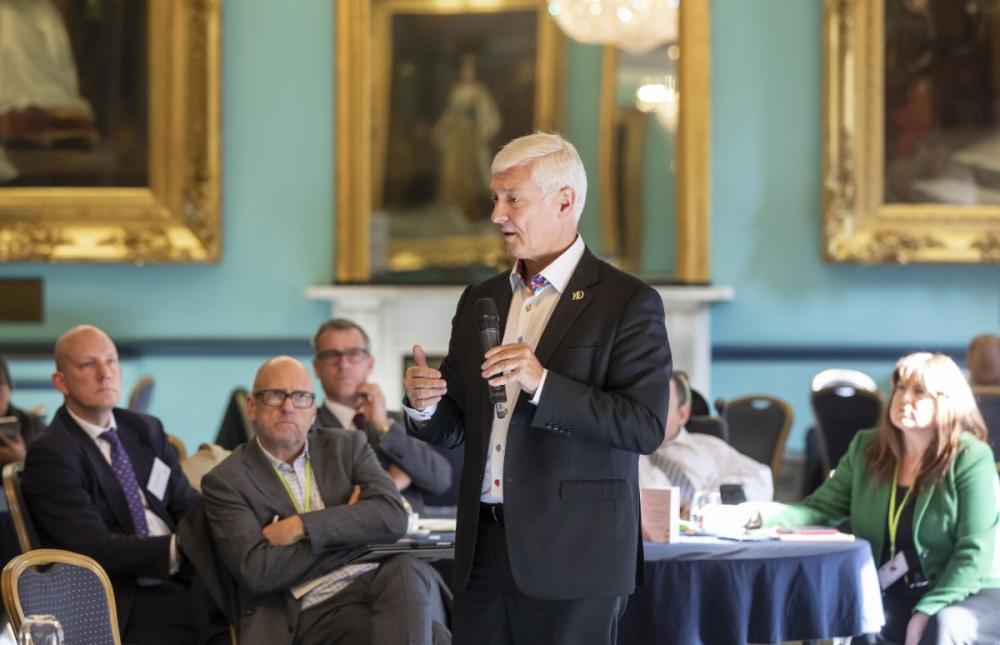
The long term effect in turning to local supply chains means it is good for the planet.
It has also accelerated the digital and technological sector. Who knew about Zoom for example before the pandemic? The flexibility of the workforce has accelerated, as has the increase in numbers of people in part-time work. So, the last mile in terms of digital is even more important, take how Deliveroo and Amazon have become remarkably successful and changed the shape of people’s lives.
Not only does he ooze enthusiasm he is passionate about putting members first and in doing so, he demonstrates an authentic voice.
Take for example how he compares his role as being like John Reith the first Director-General of the BBC whose belief was in the responsibility to enlighten and educate public taste.
“Reith was holding a mirror up to the British public and my, or rather our job, is to hold a mirror up to Government.
“We need to say this is what our members feel, you might not like it, but this is what they feel, need and think.
“My refrain is it’s my job, our job, to be really clear about articulating what our members want.”
“I’m proud of the IoD its teams and our members; not only have we been able to deliver behind the scenes, but we’ve also had some major wins on behalf of our members and because of that, there is a halo effect to the rest of British business."
As to pre-empt my next question he launches straight into the evidence.
“We were very much at the beginning of the JRS (Job Retention Scheme) encouraging government to put IR35 back a year and that was around contractors and the position of contractors. We have done a lot around holding government to account on its plans around income and business tax and we were very much at the forefront of the conversations and debate with The Chancellor and others in the treasury about how they could look at the distribution of monies.
“We were the organisation that provided the mechanism for bounce back loan repayments which is basically, the student loan system.
“It shows the IoD is an underleveraged brand. We signed a MoU with China and are talking and collaborating with people in Singapore, Hong Kong, Malaysia, Hungry and Chile. We wouldn’t get that if the brand was boring and irrelevant.”
His approach is also reaping its rewards on social media. When Jon first arrived there were about 30,000 followers on LinkedIn, it has more than doubled and there’s a huge diaspora of interested people who are following the IoD, which is growing by about 500 – 700 a month. And yet again, to reinforce his point, he boldly states that that would not have been achievable if the IoD didn’t have standing, which he puts down to how the branches are making the IoD relevant locally.
We’re coming to the end of our time let alone our coffees and I tell Jon he has put a very persuasive case forward.
To which he quickly retorts: “and I haven’t even mentioned the brilliant, underutilised research capability that is the IoD’s free Information Advisory Service.“
As for next year he is hoping to have more meetings in his office which is a terrific way of saying, if Covid permits he is going to be on the road hearing the message direct.
“It’s a tough gig running a middle market business in Covid, and we had a huge reduction in our income like everyone else, so we had to be agile and pivot to a different approach, but we are still here and ready to represent members. We are here for directors, run by directors, to improve the quality of directors.”
As I take the last swig of my cup of coffee, he can’t resist one last comment.
“There you go Andrew. Middle market Britain deserves a voice. And we offer a strong brand and, for less than the price of a cup of coffee, you can meet a local peer group, develop skills as a director and get access to government.
“Now surely that’s worth your daily cuppa?”
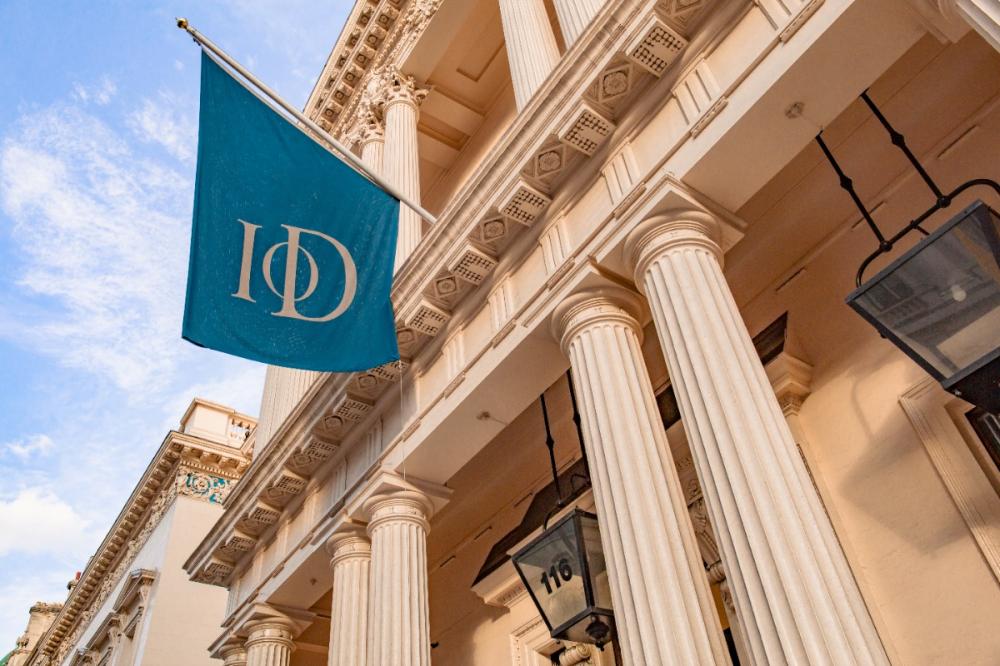
Stick with it as it is tough to be resilient. We not only have to feed our families, but we also have a responsibility to our employees and customers to make sure we are there for them at this time of incredible difficulty. And, directors have a fiducial duty, just to remind everyone, that is an important aspect and directors are personally liable. That’s why it should be taken seriously and if necessary, come and ask for help, there is nothing wrong in that. Use the IoD Networks.
On Training for directors. We are the only organisation offering director training. Yes, it is quite expensive, but it is Institute level training. The NPS [Net Promotor Scores prove we provide world class training, and that’s not just me saying that the feedback we get tells us that repeatedly.